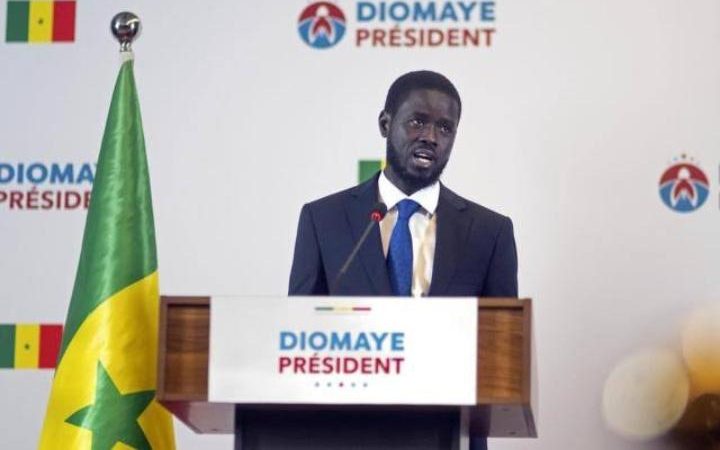
Senegal elections 2024. Navigating the winds of political change requires foresight, adaptability, and a deep understanding of the complex interplay of internal and external factors. The political landscape in Senegal, indeed appears to be undergoing significant shifts with the likely emergence of the opposition standard bearer, Basirou Diomaye Faye, as the victor.
According to the provisional results on 24th March, 2024 Presidential elections Faye, 44 year old Lawyer and Tax Inspector got 57.4%, while Amadou Ba, a former Prime Minister got 31.9%.
The victory was earned through a lifetime of dedication, integrity, and commitment to national duties, marked by resistance, resilience, and above all, selfless sacrifice. It was achieved under the leadership of The African Patriots of Senegal for Work, Ethics, and Fraternity, guided by the dynamic leadership of Ousmane Sonko, who endured imprisonment, loss of lives, and torture, paying the highest price
In President-elect Faye’s victory speech, he emphasized the high expectations, particularly among the youth and the less privileged in Senegal. He prioritizes reforms aimed at redirecting the economy to address the social and economic needs of historically marginalized groups. Additionally, he highlighted the importance of providing employment opportunities and vocational training for young people as a key focus area.
He called for a coordinated effort to bring to a stop the perilous Backway Option to Europe.
Read also: German Police Accused of Brutal Mistreatment: Gambian Migrant Gagged and Deported
Ambitious Faye said his Government represents hope and a dream- come-true for “change,” amongst generations of Senegalese left behind for years by successive governments beholden to foreign interests. We must not squander international and domestic goodwill and support for genuine reform.
This scenario presents a complex web of dynamics that require astute navigation for those involved. Let’s look into the various aspects:
- Reconciliation with France: Historically, former colonial powers often wield significant influence in their former colonies, especially in matters of finance and diplomacy. It’s understandable that Basirou would need to navigate a relationship with France delicately. Failure to do so could result in political and economic repercussions, potentially hindering the smooth governance of Senegal.
- Potential Conflict with Ousmane Sonko: The mention of a potential rift between the new leader and Ousmane Sonko draws attention to the internal dynamics within the opposition itself. Such conflicts are not uncommon in politics, where personal ambitions and ideological differences can lead to fractures within movements. Understanding and managing these internal dynamics will be crucial for maintaining unity and effectiveness within the opposition.
- The Fall of Macky Sall’s Nominee: The apparent decline of Macky Sall’s nominee signifies a broader sentiment of dissatisfaction with the current administration. This could be attributed to various factors, including governance issues, economic concerns, or simply a desire for change among the electorate. The opposition’s reclaiming of the mantle reflects a desire for a new direction and leadership in Senegal.
In navigating these political dynamics, wisdom and strategic thinking are paramount. Here are some key considerations:
- Balancing External Relations: While it’s essential to maintain diplomatic ties with France, the new leader must also prioritize the interests and sovereignty of Senegal. Building a mutually beneficial relationship with France without compromising national interests requires skillful negotiation and diplomacy
- Managing Internal Cohesion: To avoid fragmentation within the opposition, effective leadership and communication are vital. Addressing potential conflicts and differences of opinion early on can help maintain unity and focus on shared objectives.
- Addressing Public Concerns: Understanding the grievances and aspirations of the electorate is crucial for any political leader. The new leader must demonstrate a commitment to addressing the issues that matter most to the people of Senegal, whether it be economic development, social welfare, or good governance.
- Building Coalitions: In a diverse and dynamic political landscape, coalition-building can be instrumental in achieving political goals. Forming alliances with like-minded individuals and groups can amplify the influence and effectiveness of the opposition movement.
Overall, navigating the winds of political change requires foresight, adaptability, and a deep understanding of the complex interplay of internal and external factors. By approaching these challenges with wisdom and strategic thinking, political actors can help steer Senegal towards a more prosperous and stable future.
